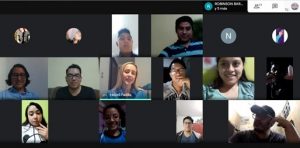In the wake of the Covid-19 pandemic, access to clean water and sanitation has become ever more important. CoST Guatemala has been supporting the Inter-American Development Bank (IADB) and Government of Spain on a project expanding these services across the department of San Marcos, strengthening local oversight of project delivery – and increasing accountability – through ‘social audit’ training. This training enables communities to monitor levels of transparency and the quality of projects being delivered locally.
The issue of water provision is particularly pertinent in Guatemala, where – despite strides taken towards expanding water supply in recent years – quality issues remain prevalent. In rural areas disparities are particularly stark, with basic water services available to just 44% of the population and sanitation services to just 51%.
Enhancing accountability in project delivery

The social audit training delivered in San Marcos focused on using data portals such as the National Public Investment System and Gautecompras to assess whether key data points were published on projects relating to drinking water and sewerage systems.
Equipped with this knowledge, citizens were able to flag instances where critical information relating to budgets and feasibility studies was missing. They also monitored delivery of environmental impact assessments, an important tool in a country highly susceptible to the impacts of climate change and drought. A social audit report was presented to the IADB in September, which will be used to identify areas of improvement in future project delivery.
A key objective of CoST Guatemala’s social audit training is for San Marcos citizens to use these skills to independently audit local infrastructure projects in the long-term. The training proved so popular that CoST Guatemala continued the programme beyond the scope of the IADB project, expanding its reach to other community groups in San Marcos and the department of Quetzaltenango.
Strengthening citizen oversight across CoST programmes
The value of citizen oversight to improve project delivery is firmly recognised across CoST: in Honduras, CoST has established partnerships with almost 250 Citizen Transparency Commissioners (CTCs) across the country, supporting citizens to use disclosed data to monitor complex infrastructure projects. To strengthen the capacity of CTC members, CoST Honduras’s School of Social Accountability provides training on project monitoring and the process of conducting social audits. As their experience develops, CTC’s are playing an increasingly important role in highlighting which projects should be included in CoST assurance.
